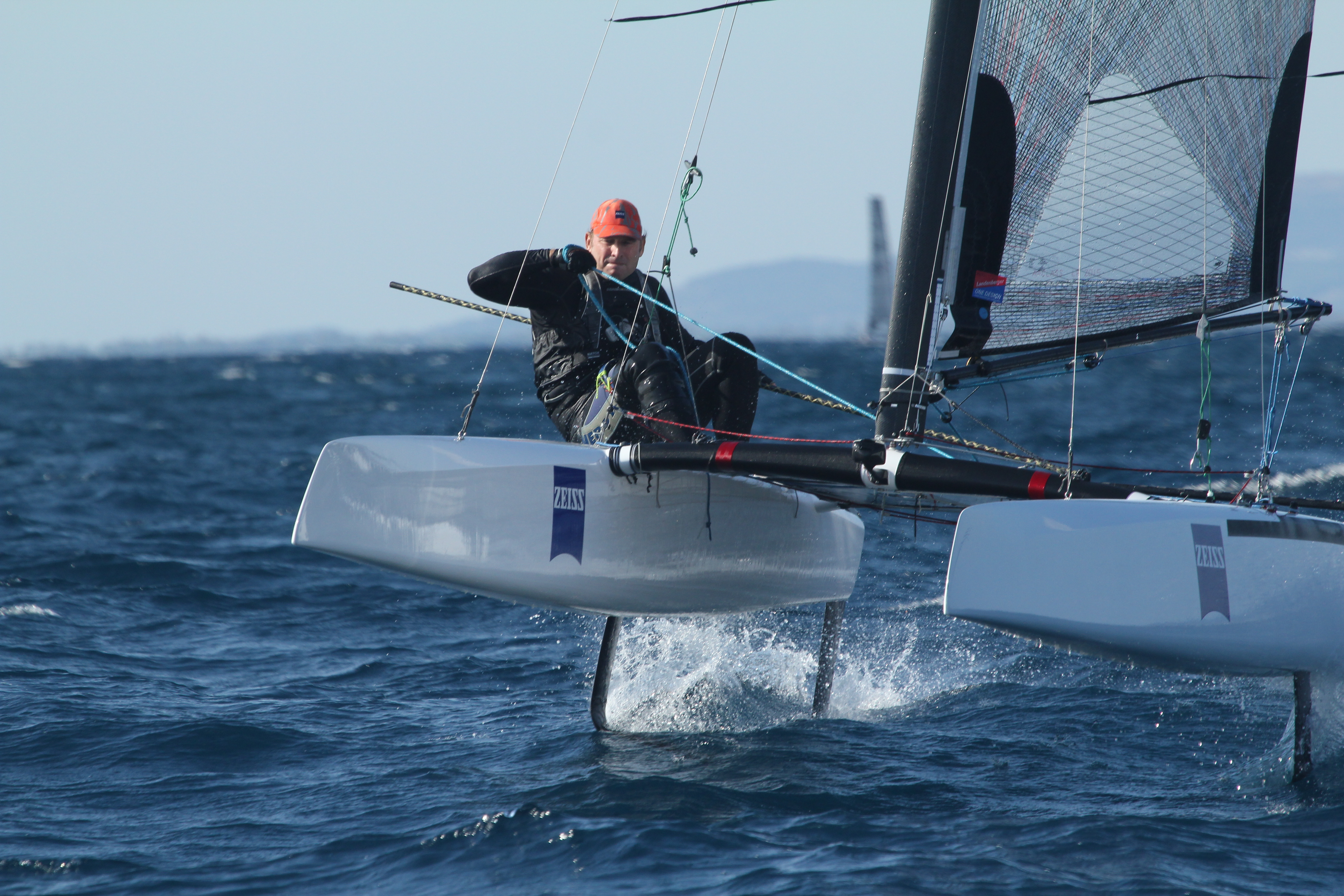Landy's response to the FFV's decision to force the class to split fleets.
IACA President Andrew Landenberger replies to the French FFV in response to their recent pronouncements.
Dear Jean Pierre,
I have read your letter with great interest. It shows you have given detailed thought and consideration to the current situation in our class which is a constant evolution of changes during this time. I would however like to point out some details surrounding my letter to the class which you have referenced in your response.
Firstly my letter was completely my personal opinion, even as president of the class I do not have the power or authority to change the rules. This is a constitutional process which is governed by the members. My letter was intended to prompt the National associations to address the issues and put forward some possible solutions. Just for the record, there was a great number of responses to that letter but no formal submission for changes to our rules has been submitted to the class. The one outcome which has been widespread across many counties has been the introduction of a second score sheet for non foiling boats. I think this is where much of the confusion has been created.
The A class catamaran remains just one class. We have not separated in any way at all. Unofficially many countries have recognised the « classic » fleet with a separate score sheet and divisional prizes. The open a class competition however remains between all boats, foiling and non foiling. There is no separate foiling division.
My letter to the class was motivated by the discussions around our open world championships. To explain further, the A class traditionally limited the entries of the world championships to 100 boats. In the past few years we have experimented with opening the worlds to unlimited entry numbers. In the past few championships we have seen entry levels exceed 160 boats. My suggestions to split the class were based around the situation of these types of numbers, not 20-25.
We are currently racing up to 120 boats in one fleet and make not distinction if they foil, semi foil, float, or just make their way around the course any way they can.
My letter was very clearly addressing the performance differences in the boats which was potentially going to effect our participation numbers in future events so my suggestions were aimed at maximising entry levels at future world championships.
My understanding was that The French A class association voted to support the classic A class with separate score sheet, not split the fleet or race as separate divisions. At the time I thought this was very forward thinking and hoped other nations would follow. I don’t believe any of us expected this discussion you are now having in France which appears to alienate the latest designs which clearly will be the future of our class in the coming years.
I understand your major concern is safety, but please consider these points. Foiling boats have been racing amongst non foiling boats since 2014 worlds in NZ. To my knowledge there has not been one accident between the two types of boats. This is possibly because the speed difference between the two types of boats is not so great as it was in the Moth class for example. Also the different angle the boats sail downwind once foiling tends to separate them quite quickly.
From a performance perspective the classic A class is still a very fast boat and in lighter winds is still a faster boat around the course than the foiling A class. This currently makes racing very interesting and heavily wind dependant. Many of the non foiling members really enjoy being faster than the Foilers in these conditions and this has strengthened the arguments to continue the open fleet competition.
I hope this clarifies the class situation at this point and you will give further consideration to how the French championships will the conducted. France is a major part of the international A class association and this outcome could have major ramifications on our class internationally.
Kind regards
Andrew Landenberger
IACA President

